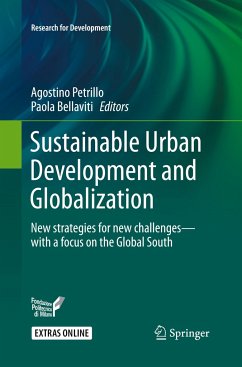
Calculative Ethics
The Ambiguous Politics of Impact Finance
Versandkostenfrei!
Erscheint vorauss. 31. Dezember 2025
161,99 €
inkl. MwSt.

PAYBACK Punkte
81 °P sammeln!
Calculative Ethics examines social and development impact bonds as a form of ethical finance that adopts a fact-centred approach to addressing social ills. Impact bonds are shown to recast benevolent investing through evidence-based governing, tying investor returns to demonstrated positive social outcomes in domains such as health and education. The book argues that this logic of fact-based financing is increasingly institutionalised, reshaping investment and donor practices across ethical and development finance. Drawing on three case studies-addressing homelessness and chronic illness in th...
Calculative Ethics examines social and development impact bonds as a form of ethical finance that adopts a fact-centred approach to addressing social ills. Impact bonds are shown to recast benevolent investing through evidence-based governing, tying investor returns to demonstrated positive social outcomes in domains such as health and education. The book argues that this logic of fact-based financing is increasingly institutionalised, reshaping investment and donor practices across ethical and development finance. Drawing on three case studies-addressing homelessness and chronic illness in the UK, and educational outcomes for girls and boys in India- Calculative Ethics traces how impact bonds bring together financial tools, scientific evaluation methods (such as randomised controlled trials), and performance management into programmatic responses to poverty-related issues. Rather than simply advancing financial interests under an ethical banner, impact bonds are shown to reconfigure both finance and ethics. They give rise to a calculative reasoning in which investments are organised around numerical evidence of improved well-being of vulnerable populations. The book argues that this reveals more complex power configurations than marketisation accounts typically suggest, while also interrogating the conceptual and political issues that emerge when 'facts' become the organising principle of ethical investing. Calculative Ethics will appeal to scholars and students of international political economy- particularly those studying ethical finance and the financialisation of welfare and development-as well as researchers in economic sociology, public policy, development studies, and human geography.












